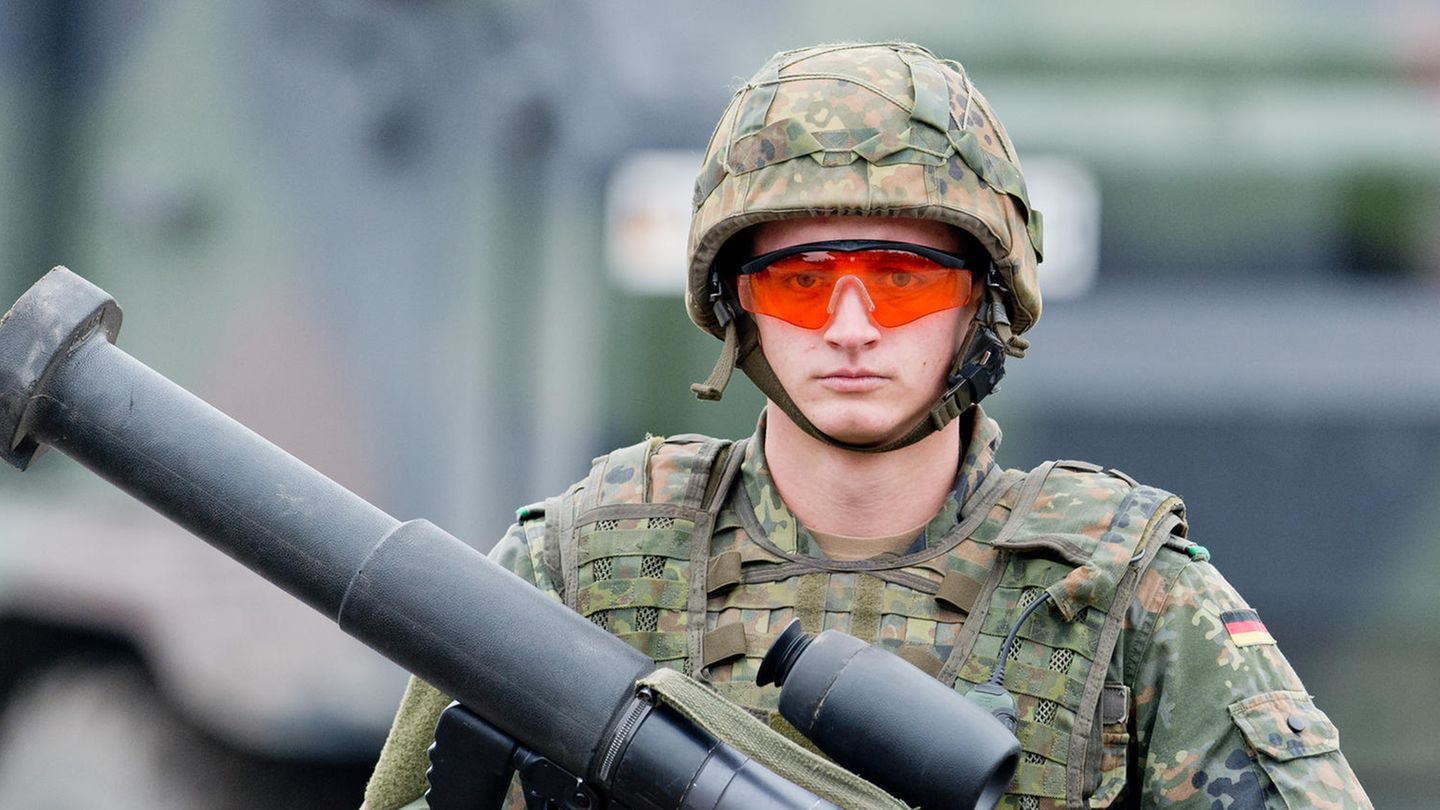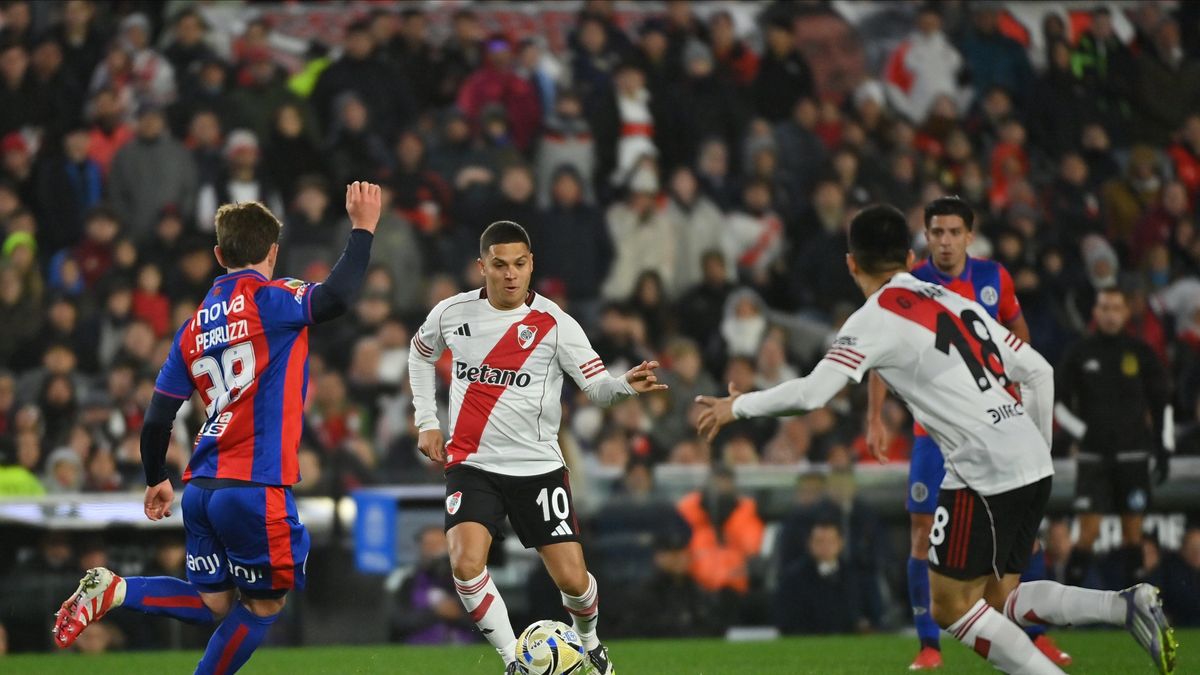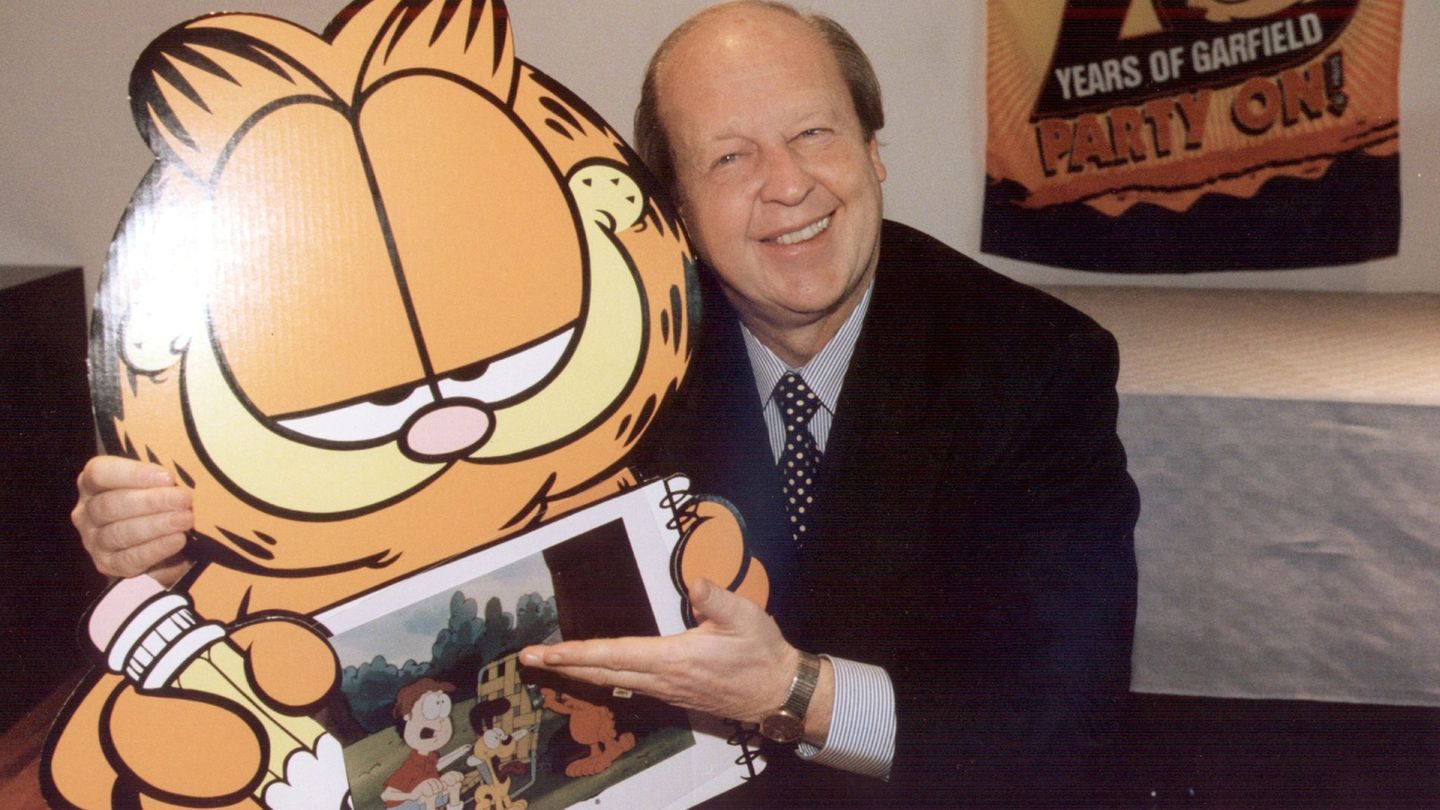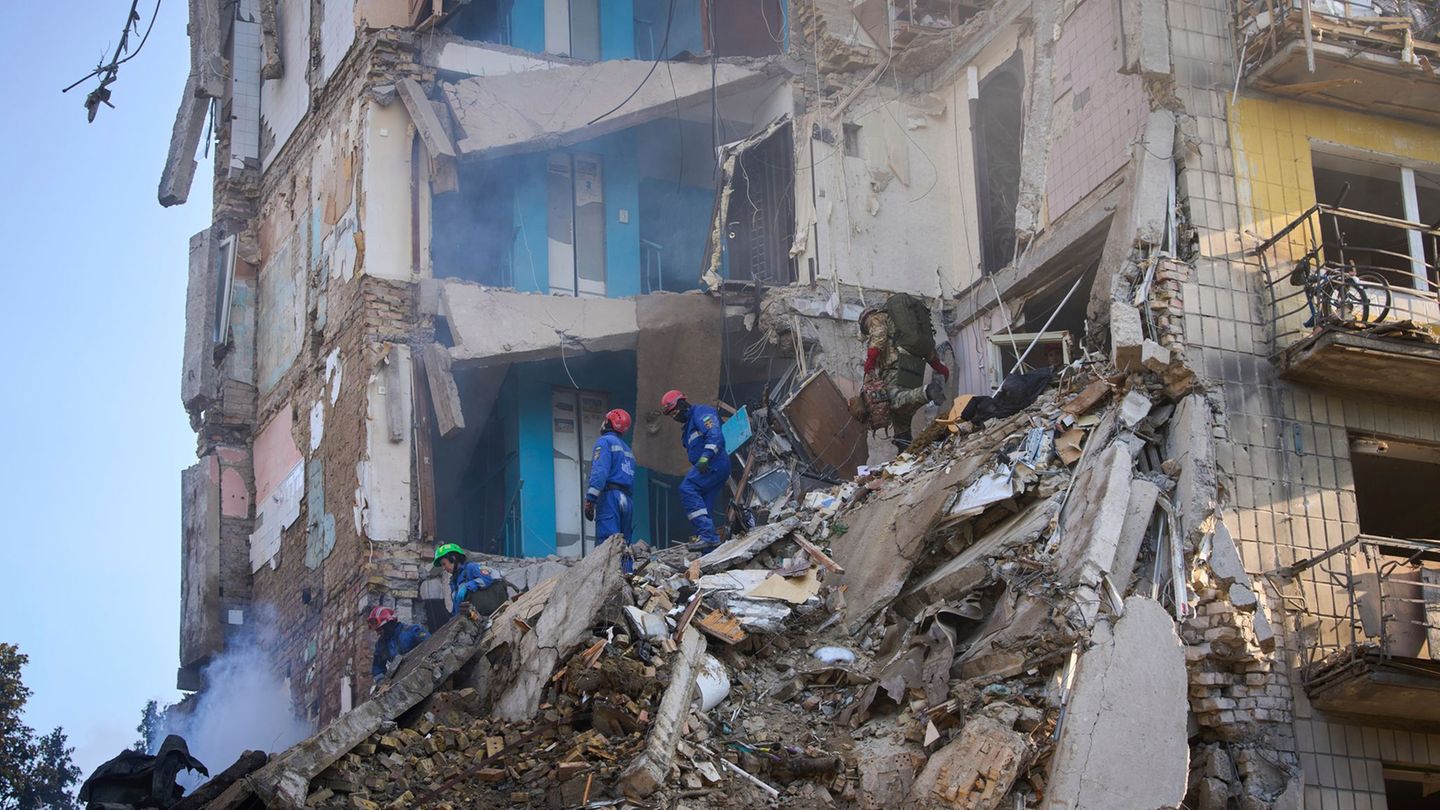Original sound from Olaf Scholz in the Bundestag: Better equipment, modern operational area, more staff that costs a lot of money. We will set up a Bundeswehr special fund for this purpose. The federal budget for 2022 will provide this special fund with a one-off amount of 100 billion euros. We will use the funds for necessary investments and armaments projects.
100 billion euros. This gigantic sum is invested in the preparation and equipment of the Bundeswehr. The record investment was announced by a social democratic chancellor whose foreign minister is from the Greens.
Because of the Russian war of aggression in Ukraine, the controversial decision was made within a few days. But what brings massive upgrade? Can deterrence prevent wars in the future – or does it even make a war – in the worst case nuclear war – even more likely?
To answer these questions, I spoke to a peace activist and a CDU politician.
Hendrik Holdmann (star): The federal government has just decided on a 100 billion euro package for the Bundeswehr. In response to Russia’s invasion of Ukraine. To what extent does that make sense?
Roderich Kiesewetter (CDU): It makes sense because over the past 30 years we’ve developed a different culture of safety. We had the culture: we are surrounded by friends and partners and can give priority to social security and social cohesion. This means that about half of the federal budget is spent on work and social affairs, family and health and the proportion of defense has continued to decrease and the Bundeswehr has been saved almost empty.
Angelika Claussen (peace activist, IPPNW): This of course contradicts our experience and also our own insights that rearmament and armament is the way to war and that it is not the way to peace. So if you want to prevent war, you have to make the relations between the countries poorer in violence a long time beforehand. So they have to be designed in such a way that – as peace ethics and peace research also say – relationships between states have to be designed in such a way that they become less violent.
Roderich Kiesewetter (CDU): I’m a very strong supporter of a networked security policy that also combines hard and soft power. I call that smart power. What does that mean? That means diplomacy and toughness. In 2014, after the illegal attack on Crimea and the destabilization of eastern Ukraine, we only responded with diplomacy. While the Americans only discussed the issue of rearmament in Ukraine. It would have been wiser to combine this across the Atlantic and to go through the Minsk process of negotiations on the one hand and to tackle Ukraine’s better equipment and defense capabilities early on on the other.
Angelika Claussen (peace activist, IPPNW): Which I don’t even hear from the defense minister, from the chancellor, from the military. What exactly are you planning there? What are the scenarios? What is this about? And I think there really needs to be some enlightenment. And the alternative – and the federal government could already do that – the alternative would also be to support the systems that are advancing peacefully. And that’s for Europe, the OSCE and for the world, that’s the UN. And why is something like that not thought of at all? So the military is only looked at very narrowly with blinkers, and that’s wrong.
Roderich Kiesewetter (CDU): It’s not about rearmament, but the Bundeswehr is poorly equipped with a view to the tornadoes. 40-year-old machines designed to do nuclear sharing. NATO cannot maintain this in the long run because the effort required to do this is too great. In this respect, the decision to procure F-35 is wise. The point here is that we need to change our safety culture. This is also about the fact that we also have to set priorities, price tags, on the basis of a national security strategy that Baerbock commissioned. And then rather the Bundeswehr – let’s say – debureaucratize. Too little strength in brigades and divisions, far too many headquarters and offices. A lot has to be done there. So this isn’t about upgrading, it’s about improving an ailing structure.
Hendrik Holdmann (star): You and your organization received the Nobel Peace Prize in 1985, in the middle of the Cold War, when the world was on the brink of a Third World War. What parallels do you see to today?
Angelika Claussen (peace activist, IPPNW): In my opinion, the situation is even more threatening. On the other hand, the population has become much, much more attentive, not only here with us, but worldwide. What we can do now is building on the nuclear weapons ban treaty. Spreading the word that nuclear control measures are possible, educating about the dangers of nuclear weapons and nuclear war. That we succeed in creating a really broad and once again East-West and North-South coalition of the peoples. And our chance now is that we really sum up the world and the populations say: We don’t want nuclear war, we have to prevent that. We say that everywhere. And that’s why “no first use” is the credo.
Roderich Kiesewetter (CDU): So equipment improvement has nothing to do with nuclear issues. However, I see the nuclear threat very well, because Putin is not making any headway with his war against Ukraine, which is contrary to international law, and rather than blackmail, he can talk about handing over Kyiv or the use of weapons of mass destruction. Be it biological weapons, any germs, smallpox for example, be it chemical weapons from chlorine gas to nerve gas. Russia has experience there. See Skripal or Navalny. Or nuclear blackmail, in which a tactical artillery shell is detonated somewhere west of Kyiv with a hundredth the explosive power of Hiroshima. For Russia, tactical nuclear weapons are part of conventional warfare, for NATO they are not. So I really want to seek dialogue with groups in Germany who fear rearmament or nuclear war. We must do everything we can to conduct civil society dialogue about disarmament, arms control and verification. And looking ahead: There will also be a post-Putin Russia. It must really be in our interest that we create new arms control agreements and confidence-building measures. But the threat does not come from NATO. We actually have a potential threat on the Russian side, which we deliberately did not respond to.
Source: Stern
David William is a talented author who has made a name for himself in the world of writing. He is a professional author who writes on a wide range of topics, from general interest to opinion news. David is currently working as a writer at 24 hours worlds where he brings his unique perspective and in-depth research to his articles, making them both informative and engaging.




